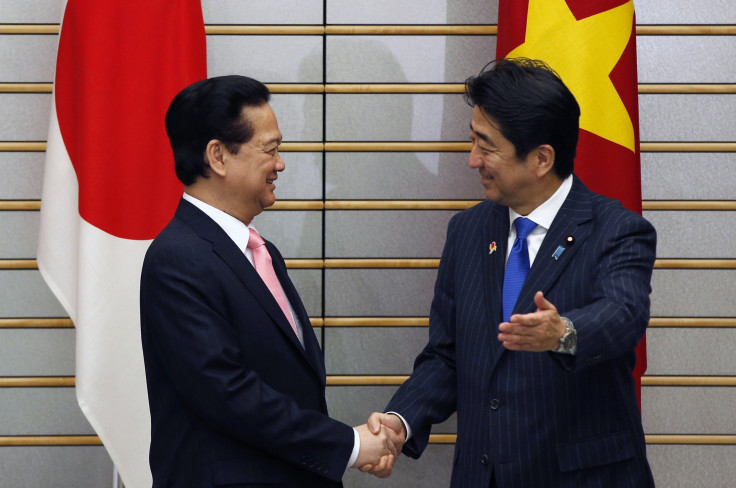Japanese Companies Shift Investment To Vietnam As Thailand And China Become Less Attractive

Japanese investors are heading to Vietnam as of late, as Thailand is rocked by political instability and China becomes less attractive with rising wages. Increasing foreign capital could help Vietnam welcome a new era of productivity.
In 2013, Japanese capital flow to China dropped to $6.50 billion, less than half the $13.48 billion Japanese investment China attracted in 2012. Similarly in Thailand, in 2011 Japanese investment amounted to $7 billion, while in 2013 that number dropped to $2.5 billion, according to the Business Times, a Vietnamese newspaper.
Vietnam, on the other hand, experienced the opposite trend. Foreign investment increased from just $169 million in 2010 to $4.45 billion in 2013, including a number of high-profile projects backed by Japanese companies like the $2.8 billion Nghi Son petrochemical oil refinery, the $650 million Bridgestone’s project, and the $175 million Panasonic Industrial Devices project.
Vietnam’s chief attractions include a peaceful environment and low cost labor force, said Atsusuke Kawada, chief executive of the Japan External Trade Organization (JETRO).
“In Vietnam, Japanese can find the things they cannot find in other countries,” Kawada said, according to the Business Times.
“Vietnamese are very diligent and hardworking, which can be reflected in the lower numbers of workers’ days-off than in other countries,” Kawada added. “Besides, it is easy to recruit workers in Vietnam, while employers do not have to pay too high to employ workers.”
But while cheap labor had always been appealing, Vietnam is now also the destination of more important, high added-value fields such as electronics. In late 2013, Fuji Xerox put its $120 million printing machine and photocopier factory in the Vietnam-Singapore Industrial Park in the Vietnamese city of Hai Phong City into operation.
However, to maintain long-term attractiveness to Japanese and other foreign investors, said Hirotaka Yasuzumi, the managing director of JETRO, according to the Thanh Nien News. In a 2013 survey by JETRO, 70 percent of 435 Japanese businesses in Vietnam have plans to expand their Vietnamese operation and make the market a major base.
© Copyright IBTimes 2024. All rights reserved.











